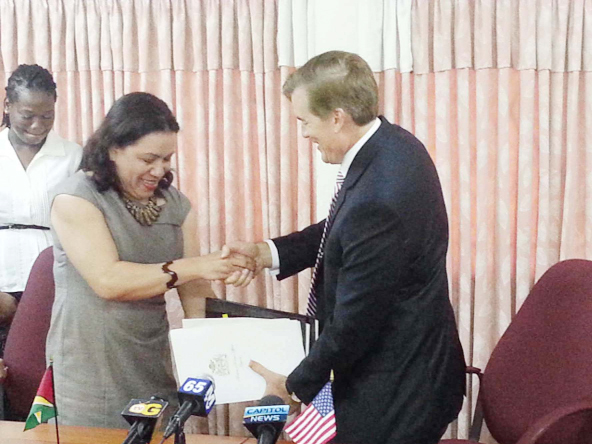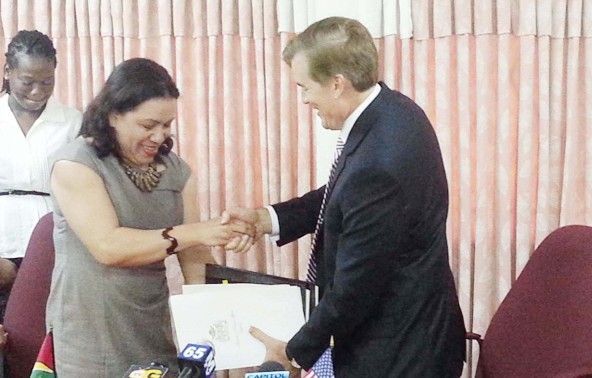Two agreements signed yesterday with the US will see Guyana getting help to go after drug lords along with training for key personnel and to protect the cooperation, lie-detector tests will be required of local officers who interface with their US counterparts.
Through the Caribbean Basin Security Initiatives (CBSI) I and 11, Guyana can expect continued financial aid from the United States to aid in tracking down, capturing and prosecuting drug traffickers and persons engaged in financial crimes. At the same time, security officers are to be trained. The agreements could herald a new phase of cooperation between the two countries on the drug fight which had been marred by acrimony and distrust during the Jagdeo administration. Critics of the government’s anti-narcotics efforts have argued that there has been no arrest and prosecution of any drug lord here in 20 years and that the big players operate unhindered.

“The United States proposed the CSII program to its CBSI partners so we can all share land, sea, and air traffic data in order to detect, monitor, and interdict illicit activities in the Caribbean,” U.S Ambassador to Guyana Brent Hardt, told the signing ceremony at the Ministry of Foreign Affairs.
The CBSI agreements between the two countries allow not only for an additional US$860,000 or $172M in security sector assistance, but an agreement to share information through the Cooperative Sensor Informa-tion Integration system which will track airborne, maritime and land traffic as part of counter-narcotics efforts. This signing came as Hardt explained

